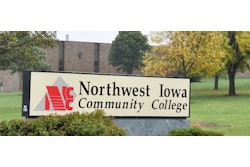WASHINGTON — As Congress seeks to reform the accreditation system for institutions of higher education, it should avoid a “one-size-fits-all” approach that fails to take into account the varied missions of different colleges and universities that serve diverse student populations.
 Dr. George A. Pruitt, president of Thomas Edison State University, said that it’s “important that metrics be mission-sensitive.”
Dr. George A. Pruitt, president of Thomas Edison State University, said that it’s “important that metrics be mission-sensitive.”That was the advice that Dr. George A. Pruitt, president of Thomas Edison State University, proffered Thursday during a two-hour hearing on accreditation conducted by the Republican-controlled House Committee on Education and the Workforce.
“It is certainly important that metrics be mission-sensitive,” Pruitt testified. “In the absence of that, metrics tend to assess the demographics of the student body and not the quality of the institution.”
To illustrate his point, Pruitt noted how some observers might disdainfully regard institutions with graduation rates of 20 percent or lower as being “too low.”
“It is too low if your students are going to school full time and expect to graduate in four years,” Pruitt said. “None of the 17,000 in my institution go full time and none expect to graduate in four years,” he explained about Edison, a Trenton, New Jersey-based institution that he described as a “specialty” university that provides flexible coursework for “self-directed” adults.
Conversely, Pruitt said of Princeton University — his institutional colleague “down the street” — virtually all of the students attend full time and expect to graduate in four years.
“To create one metric that you apply across the board to different institutions without regard to the individual mission of the institution or the constituencies they’re serving distorts the picture of both institutions,” Pruitt said. “The dreaded template never works for diverse institutions serving diverse populations.
“It actually misleads the public and looks for false indicators of quality that actually confuses the conversation,” said Pruitt, who is former chair of the Middle States Commission on Higher Education — a post he held for three terms until this past December.
“That’s why it’s so important to have these indicators referenced to that particular institution against similar institutions and peers,” Pruitt said. “You can do that … and that’s the way it should be done and not the dreaded template.”
Pruitt said if he had his way, he would scrap the College Scorecard — a product of the Obama administration meant to provide students and families with information that purportedly would enable them to make better decisions when they choose a particular college or university. Pruitt — whose institutional graduation rates do not appear on the scorecard — said the scorecard leads to “bizarre” results.
Pruitt’s testimony comes as questions linger over the direction the federal government will take with respect to its role in accreditation as it seeks to hold colleges and universities — particularly those within the for-profit sector — accountable for the student outcomes they achieve with the billions of taxpayer dollars they receive each year in the form of federal student aid.
For instance, enforcement of the Obama administration’s “gainful employment” regulation that sought to hold institutions accountable for poor outcomes for students has been delayed under U.S. Secretary of Education Betsy DeVos.
The responsibility of holding institutions accountable through accreditation falls to what is commonly referred to as “the triad,” that is, states, the federal government and accrediting bodies.
While Pruitt and others spoke of the burden and costs of complying with federal reporting requirements, other panelists, such as Ben Miller, senior director for postsecondary education at the Center for American Progress, a left-leaning thinktank, stressed the need to make the triad more assertive and more outcomes-focused.
“The triad is failing us,” Miller said. “While no part of the triad is blameless, accreditors have either stood by or acted with molasses-like speed while taxpayer dollars and student dreams got wasted.”
To demonstrate his point, Miller noted how the campuses of the for-profit Corinthian Colleges “maintained accreditation until the day it closed or was sold, even as allegations of falsified job placement rates, altered grades and inadequate education piled up.”
“There are many schools of all types today that can proudly advertise their accreditation while producing high levels of borrowing, low completion rates and poor repayment outcomes,” Miller said. “Do accreditors know about these problems? Yes. They wag their fingers and sometimes issue threats. They rarely pull the plug.
“Everyone in this room pays for this inaction,” Miller said. “As taxpayers, we all pay when federal loans are forgiven due to fraud or aid does not turn into a credential.”
However, Dr. Mary Ellen Petrisko, president of the WASC Senior College and University Commission, cautioned against being quick to revoke accreditation.
“We’re very keenly aware that students have no other institutions to attend if they are not able to attend the one where they are currently enrolled,” Petrisko said. “So we want to keep institutions strong and address issues of noncompliance with a range of actions, not pulling the plug automatically.”
That recommendation resonated with Rep. Virginia Foxx, R-N.C., who chairs the House Education Committee.
“I am happy for the issue to have been brought up about some for-profit institutions being closed precipitously,” Foxx said. “But what troubles me is the total lack of concern that the previous administration had for the students in those institutions.
“It seems to me that it was so unkind for the (Department of Education) to simply pull the plug. And I can’t blame the accreditors for the students having the problem, because it was the department that said, ‘We’re cutting you off from your money,’ and then they closed without the ability to teach out, without the ability for those students to make a transition.”
However, Rep. Bobby Scott, D-Va., the committee’s ranking member, said the fact that some institutions maintain accreditation “right up to the day they collapse is evidence that more needs be done.”
“The federal government has a $150 billion a year interest in getting this right,” Scott said. “So either the accrediting agencies, who should be in the best position to judge the quality of education, must credibly make the assessments, or the federal government will have to figure out something that’s both fair and workable.”
Dr. Michale S. McComis, executive director of the Accrediting Commission of Career Schools and Colleges, or ACCSC, which mostly oversees for-profit institutions, said it is important for standards to be applied consistently and for the federal government not to inject “undue and inappropriate federal intrusion” into the academic processes of higher education.
“Holding accreditors accountable for the way they work with their institutions and establish those outcome standards is key,” McComis said. “Any guidance that Congress can give to the department in the establishment of those regulations to talk about the consistent application across all accreditors would be useful.”
Miller stressed the need for following up with students several years after they graduate.
“We should be talking to people long after they’ve left and seeing, ‘Did this result in what you thought it would?’ Because people in the moment don’t know until they leave,” Miller said.
“We’ve seen this with a lot of the troubled schools,” he continued. “They thought they were getting a good education in the moment, then left and tried to find a job, and found out it totally didn’t work.”
Jamaal Abdul-Alim can be reached at jabdul-alim@diverseeducation.com or you can follow him on Twitter @dcwriter360.















